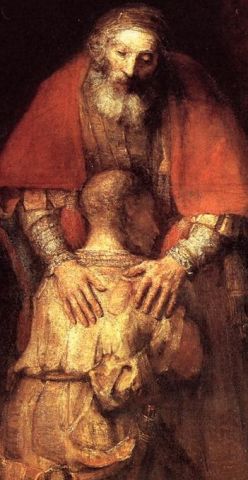 For sheer awkwardness, there’s not much to compare with the moment when a friend hands you a book and says, “Here, this is my first novel, I hope you enjoy it.” That happened to me this January.
For sheer awkwardness, there’s not much to compare with the moment when a friend hands you a book and says, “Here, this is my first novel, I hope you enjoy it.” That happened to me this January.
I was lucky, though: the friend was Craig Hazen, and the book was Five Sacred Crossings: A Novel Approach to a Reasonable Faith. This is a good book, a good idea carried out well.
It’s a good idea to write a suspenseful thriller in which reasonable people talk abut important spiritual ideas. But there are a lot of bad ways to carry out that good idea. For one thing, the genre is one that forgives sloppy writing. Judging by the success of the Da Vinci Code, the genre even seems to reward some recklessness with facts, and to give bonus points to authors who are willing to take ideas to outrageous extremes. But Hazen maintains high standards of plausibility, and his characters respond sympathetically to events which his readers can easily imagine taking place. He has a good ear for dialogue, especially since he keeps most of the book on a college campus. Hazen knows how professors talk –he is one– and he knows how students talk. So he obeys the first law for new writers –write what you know– and produces a tense classroom drama. Much of the dramatic suspense is created by the enjoyable, stimulating class discussions, which sound a lot like real life but just a little better. The hero at one point is under great pressure to translate an obscure text from an ancient language for national security purposes, and he actually goes about the work of translating the way a real scholar does. And at the risk of comparing Five Sacred Crossings with the Da Vinci Code, this book has a surprising re-interpretation of a classic painting, but in this case it’s one that some actual art historians would agree with. Finally, by the time the action moves outside and military forces get involved, everything happens believably and with the right level of excitement.
Hazen gets everything right in this book: it’s a short book that’s a quick read. He doesn’t try to hide the fact that it’s a piece of Christian apologetics, but he also doesn’t force it out of the world of fiction by including study questions or an evangelistic appeal. I could even say that the hero is a smoker and nobody gets saved, but that would make it sound as if the book is going out of its way to transgress boundaries (like one of those youth leaders who can’t stop cussing).
A lot of art made by Christians is spoiled by didacticism, or “teachyness”: it breaks out in overt teaching when it shouldn’t. But Hazen’s out to teach, and he’s honest about it. As a result, Five Sacred Crossings is perfectly didactic: a character who is a college professor leads a class of students in fascinating discussions. It’s a good reminder that didactic isn’t a bad word in itself; it was always mis-placed didacticism that was the problem.
Five Sacred Crossings is a fine piece of work; I genuinely enjoyed reading it and have already considered giving copies to people who need to be eased into serious conversations on spiritual matters. It’s from Harvest House, and is available here.